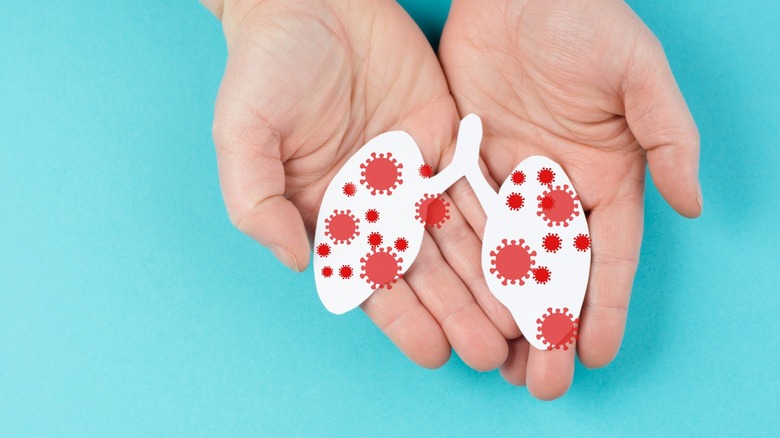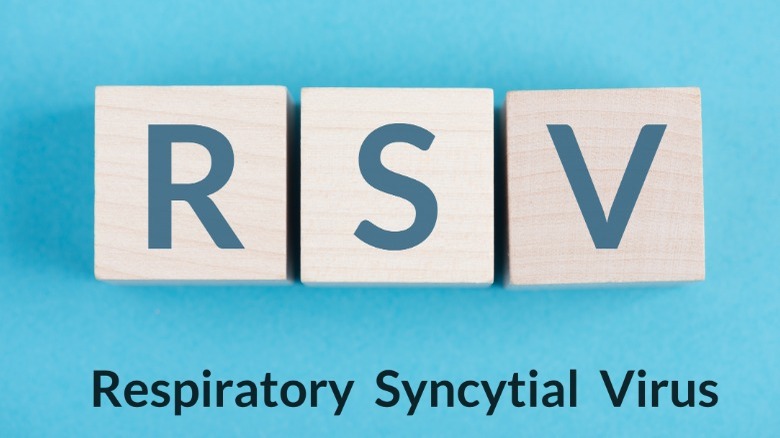FDA Set To Fast-Track New Drug To Prevent Infant RSV
Respiratory syncytial virus (RSV) is a well-known respiratory virus that can spread through a cough, sneeze, and even through contact with a surface that contains the virus (per MedlinePlus). It can also mimic cold-like signs. However, RSV can infect the lungs and cause severe health issues. Mild symptoms can include a dry cough, slight fever, headaches, nasal congestion, sore throat, and sneezing, according to Mayo Clinic. On the other hand, more serious indicators include coughing, fever, trouble breathing, and even wheezing.
Notably, RSV can be particularly dangerous for infants since they can develop a more serious condition from the virus, like bronchitis or pneumonia. In fact, babies can also show signs of disrupted breathing, irritability, or loss of appetite. Fortunately, there may be good news for infants with RSV as the United States Food and Drug Administration (FDA) plans on reviewing a new drug to prevent the virus (via AstraZeneca). Here's everything you need to know.
The potential preventative for RSV
Recently in the United States, infant cases of the respiratory syncytial virus (RSV) have been an increasing issue, particularly in the past year (per AstraZeneca). Fortunately, the United States Food and Drug Administration (FDA) has accepted a biologics license application for the drug nirsevimab, which is a single-dose antibody preventative for infants with lower respiratory tract infections brought on by RSV. The FDA plans on making its decision sometime between July and September of this year.
AstraZeneca and Sanofi developed the new drug and will expedite the process with the hopes that the drug will be available toward the end of the year. Notably, a 2022 study published in The New England Journal of Medicine found that only 1.2% of infants, who took nirsevimab, needed medical attention for RSV-related lower respiratory tract infections, whereas 5% of infants had RSV-related lower respiratory tract infection in the placebo group. Therefore, researchers concluded that nirsevimab has an efficacy of nearly 75%.


